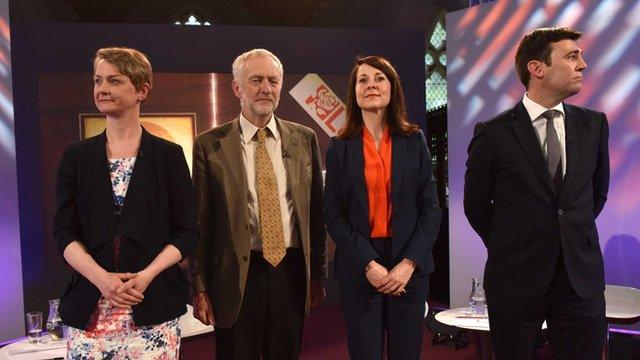Labour candidates seek Welsh support at Cardiff hustings
- Published
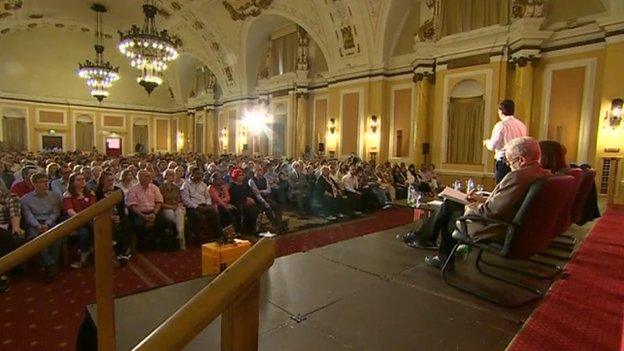
Labour members packed Cardiff City Hall to hear and question the candidates
More than 600 people have attended the only Labour leadership hustings in Wales.
Andy Burnham, Yvette Cooper, Jeremy Corbyn and Liz Kendall are hoping to succeed Ed Miliband who resigned after Labour lost the May general election.
Immigration, education and child poverty were among the subjects discussed in Cardiff on Sunday.
Some of the most lively exchanges were on Labour's failures in the general election campaign.
Ms Cooper said the party had been too narrow while Mr Burnham accused their former leader of failing to tackle the myth that Labour was to blame for the financial crisis.
Ms Kendall said Labour had fallen into Tory traps and Mr Corbyn called on the party to take on what he called "Conservative greed".
Postal vote
All have spoken of the need to build on the party's success in Wales, the only UK nation where it holds power.
The winner, to be chosen by a postal vote of all Labour party members, will be named in September.
Sunday's leadership hustings was followed by one for the deputy leadership.
Ben Bradshaw, Stella Creasy, Angela Eagle, Caroline Flint and Tom Watson are the candidates hoping to succeed Harriet Harman.
Currently acting leader of the Labour party, Ms Harman will step down in September once the new leader and deputy are confirmed.

Analysis from Nick Servini, BBC Wales political editor
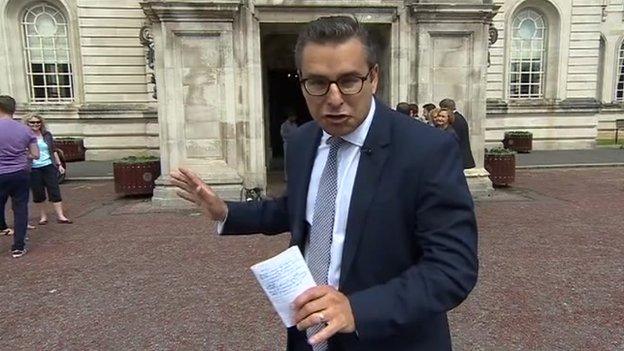
This was a lively affair - particularly, and unsurprisingly, when they debated Labour's failings in the general election campaign.
Andy Burnham probably won if there had been a clapometer with his punchy delivery.
On immigration, he said the party needed practical solutions so "we do not avoid people's eyes on the doorstep when immigration comes up".
Yvette Cooper delivered some lines that went down well, particularly early on when she said the Conservatives decide nationally and then blame locally, and at the end when she said "we know David Cameron has a woman problem - let's give him a bigger one" by electing her as leader.
Liz Kendall tried to appeal to Labour members to think about the middle ground saying that if the party goes too far to the left then it'll be in the wilderness for a decade.
Jeremy Corbyn clearly appealed to a chunk of the audience with his anti-austerity message.
There is a sense of urgency to this hustings that may not exist in other parts of the UK with the assembly election on the horizon.
The key question is whether the Labour members at the hustings are thinking about who is most attractive to them or who would be most attractive to wider voters.
In other words are they thinking about a Labour leader or a Labour Prime Minister?
- Published5 July 2015
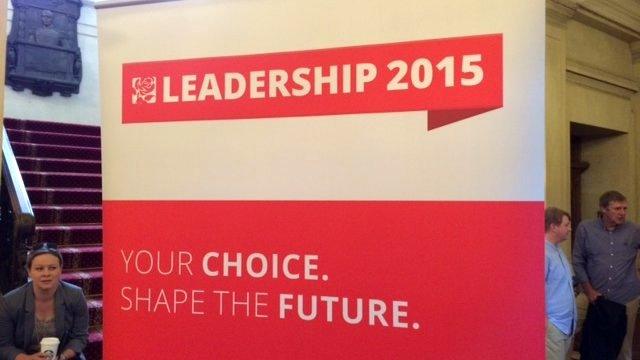
- Published28 June 2015
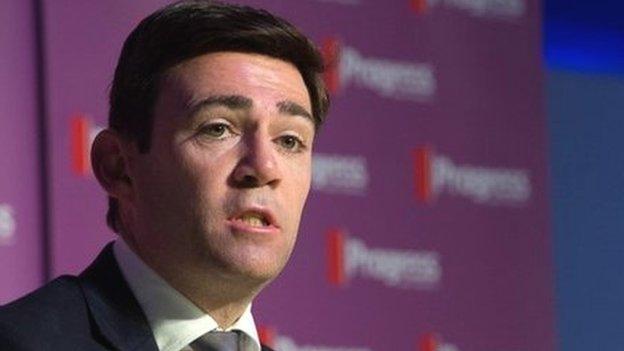
- Published24 June 2015
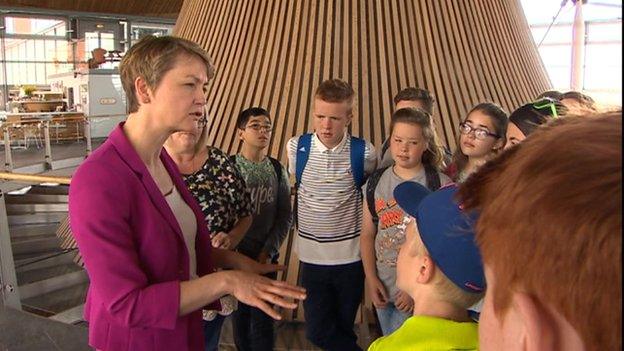
- Published16 June 2015
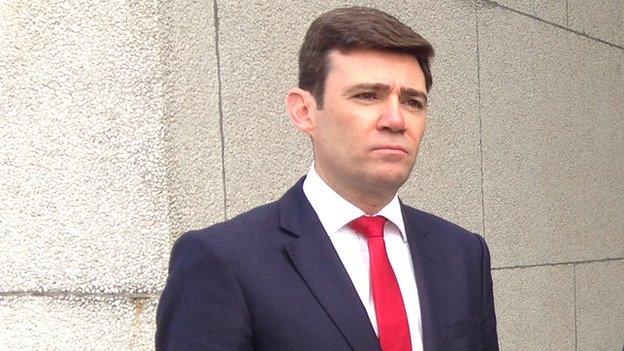
- Published17 June 2015
